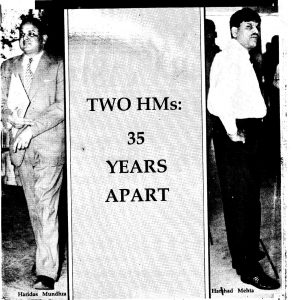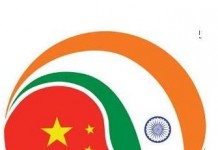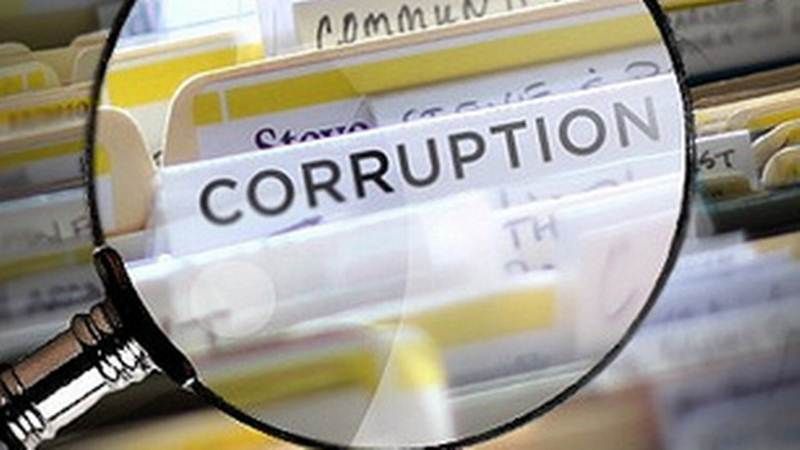http://www.freepressjournal.in/analysis/promotion-of-corruption-act-is-now-in-place-r-n-bhaskar/1331485
How to promote corruption by changing the law
— By | Aug 09, 2018
Last week the government finally got the Parliament to clear the Prevention of Corruption (Amendment) Act (PCAA). It appears to make the right sounds. It aims to provide good deterrents to revent corruption. But read between the lines, and the laws appear to be aimed at protecting criminals by ensuring that evidence against them never gets recorded.
To understand how governments over the past seven decades have introduced laws to frustrate the very objectives of the Constitution, it is imperative that we consider a historic benchmark.

Go back to the first scam recorded in independent India — the Mundhra scam – which rocked the newly formed nation. It embarrassed the government of Jawaharlal Nehru, which (like all governments) kept harping on upholding values. Ironically, the scam was exposed by none other than Feroze Gandhi, Nehru’s son-in-law.
It related to a huge sum of money being irregularly advanced by LIC to a businessman named Haridas Mundhra against shares that he owned. As soon as the decision to purchase the shares was taken, market prices shot up, letting Mundhra borrow even larger sums of money. Later, it was discovered that many of the shares sold to LIC were bogus (https://en.wikipedia.org/wiki/Haridas_Mundhra).
This author wrote about this in the (now extinct) Express InvestmentWeek (EIW) publication dated May 25, 1992. The title was “Two HMs: 35 years apart”. The other HM was Harshad Mehta. In both scams, the principal characters were the prime minister’s office, the finance minister, the RBI governor and the LIC chairman.
But the Haridas Mundhra enquiry is significant because of the high standards of probity that were adopted then. Justice MC Chagla, the one-man-enquiry-commission, held public meetings in the legislative council hall near the Prince of Wales Museum in Mumbai (it is now the police headquarters for the state police). There were no in-camera proceedings. When the attending audience grew in size, loudspeakers were fitted in the lawns so that people could sit there and hear the testimony of senior bureaucrats and even ministers.
The Union minister of finance accepted full responsibility for the ‘scandal’ and resigned. The chairman of LIC followed suit. So did the president of the Calcutta Stock Exchange. The principal finance secretary, despite being exonerated by the Union Public Service Commission (UPSC), which also investigated his role in the affair, also resigned on moral grounds.
That was the last time, in the author’s memory, when ministers and bureaucrats were called to testify in public. Laws were soon introduced to protect bureaucrats from vexatious litigation. No prosecution was allowed against them till permission came from competent authorities. Soon, this privilege was extended to legislators as well.
The new PCAA now extends this protection to bankers too. Thus no banker can now squeal and inform the investigators the names of people who asked them to advance moneys to dodgy promoters. Hence, India’s citizenry will pay for the non-performing assets (NPAs) but will have no right to know who asked the bankers to imprudently advance such large sums. Sunlight is no longer a disinfectant. It is the cause for undesirable exposure.
The better alternative would have been to grant bankers approver status, thus protect them from prosecution, in return for the names of the people who asked them to clear rotten loans and advances. Had that been done, the corruption within banks would reduce.
Then take the second major amendment. Both the bribe-giver and the bribe taker are now held guilty. They can be imprisoned for upto 7 years, instead of just 3 earlier. But there is a caveat. No public servant (and banker) can be charge-sheeted or hauled up for investigation without first obtaining permission from a competent authority. So, the only one who goes to prison is the squealing bribe giver. The bribe taker remains free. Thus, the new provisions actually promote corruption. They don’t prevent it.
But aren’t bribe givers guilty? Of course they are. But only if they have induced corruption. In most cases, bribes are the result of extortionate demands (http://www.asiaconverge.com/2018/08/the-government-protects-bribe-takers/). The government officer asks for money to grant something that is legally the citizen’s right — like birth, death and marriage certificates, or authorizing a building development plan.
Someone should have shown the legislators the March 2011 paper authored by Kaushik Basu, former chief economic advisor (http://www.kaushikbasu.org/Act_Giving_Bribe_Legal.pdf)_ Titled, “Why, for a Class of Bribes, the Act of Giving a Bribe should be Treated as Legal“, Basu spoke of the need to treat bribe-givers not as criminals, but as victims. Unless that is done, he said, nobody would come forward and register complaints. As a result, bribe givers would remain protected, while bribe givers would be rendered vulnerable.
Unfortunately, the PCAA strengthens bribe takers. And it weakens bribe givers. It thus protects crime.
That is not preventing corruption. It is promoting corruption.



































COMMENTS